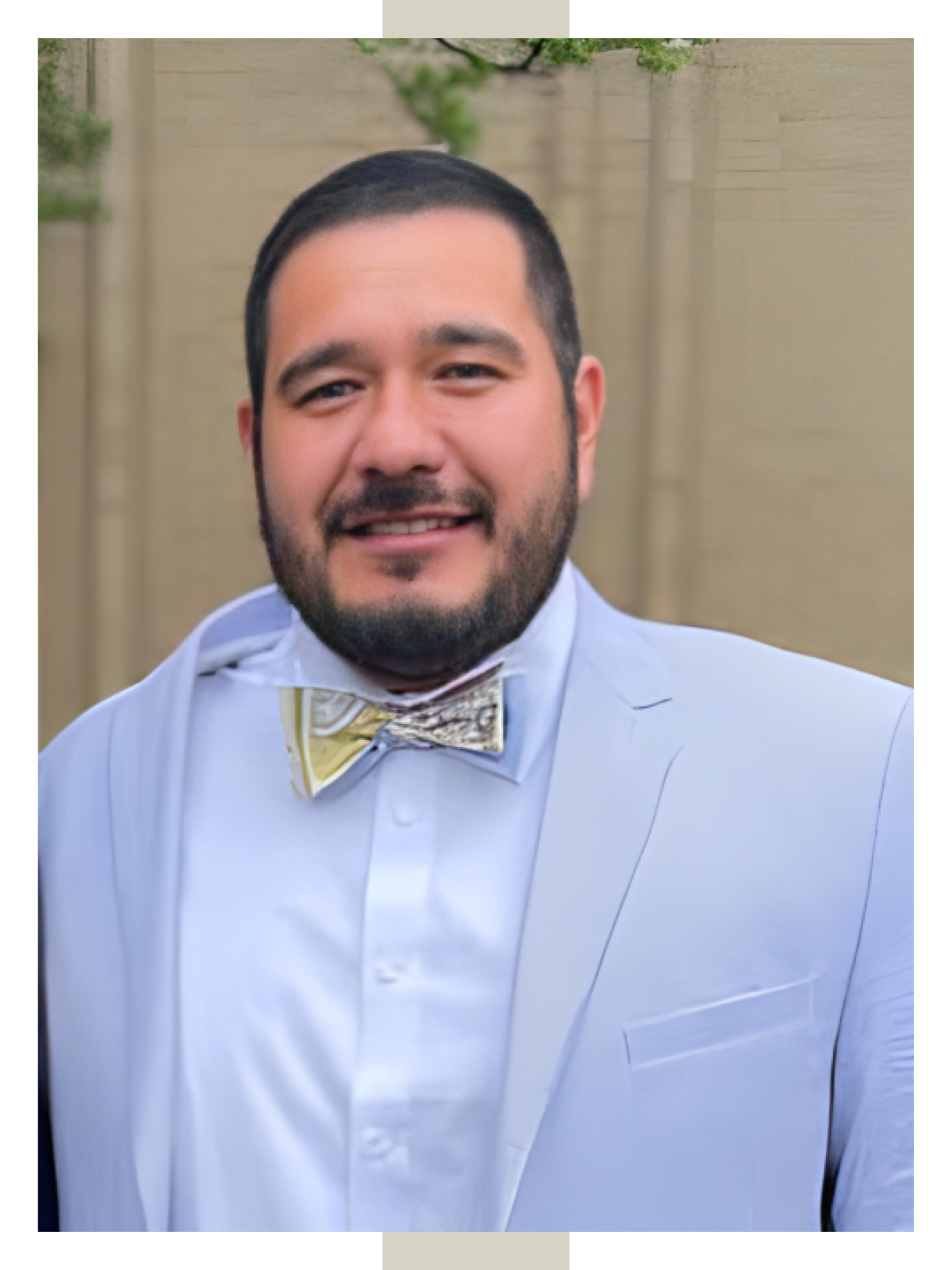
Felipe Pedraza
Educator Felipe Pedraza's first exposure to an agriculture class was accidental. It led to a career teaching students about the breadth of opportunity in the agriculture industry.
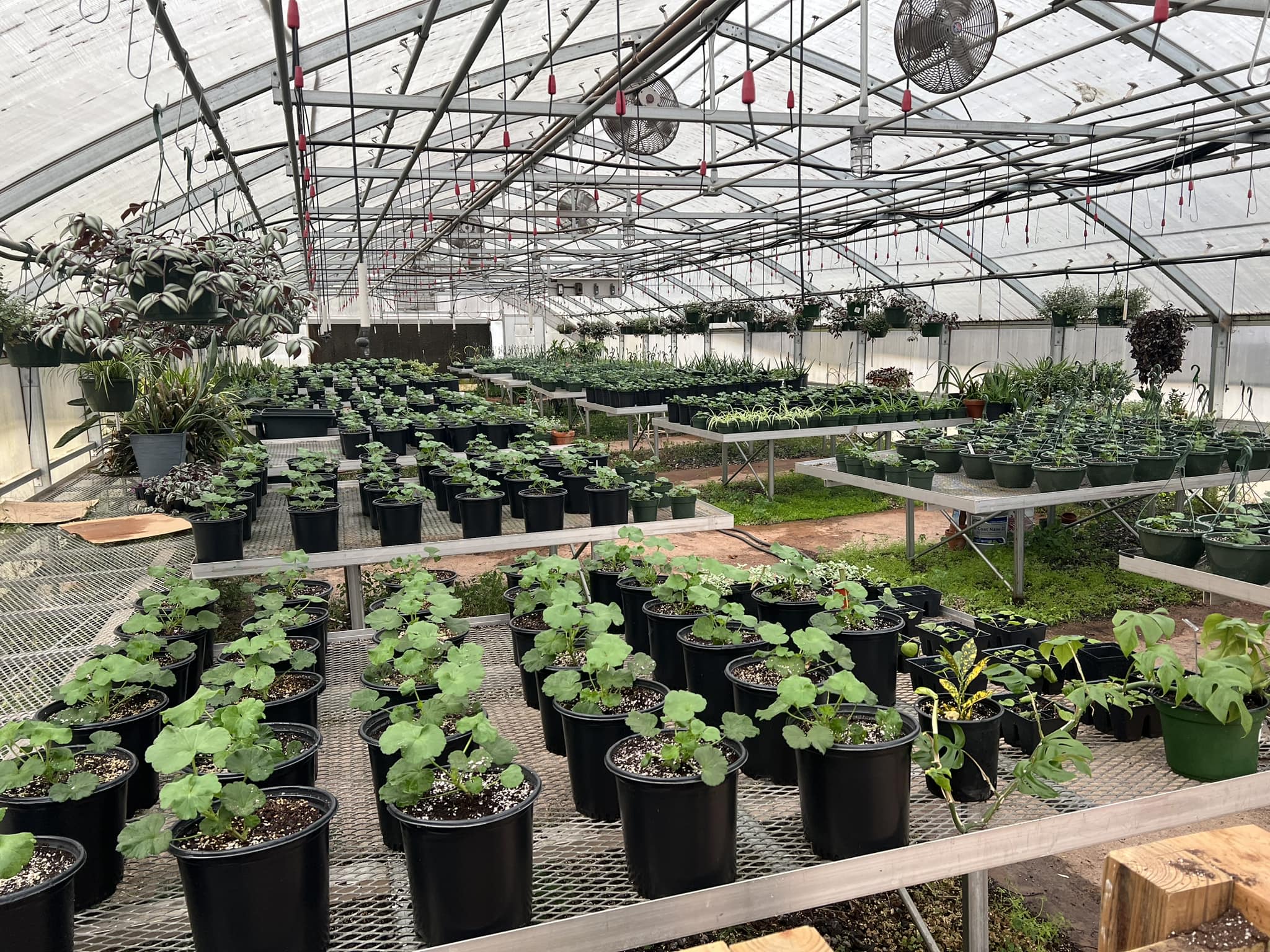
When Felipe Pedraza started ninth grade at Screven County High School, he signed up for a computer science class but, because of the demand for the class, he and other students were diverted into different electives.
“I was accidentally put into an agriculture course. I didn’t like it and wanted to switch classes,” said Pedraza, but his parents, natives of Mexico, had a different take on the situation.
Pedraza’s mother and father were honest about the difficulty of the work they did — his father, Felipe Sr., worked in cotton gins, and his mother, Laura, worked in a yarn factory — and impressed upon their children the importance of education to improve their chances of success in life.
“They said I was in the course and I had to stay in the course — and get good grades,” Pedraza said.
Fortunately, Pedraza said, his teacher, Nancy Sell (BSA — Dairy Science, ’97), was in her first year of teaching at the high school and took notice of the hardworking young man.
“We just hit it off really well. I made a good impression on a lot of teachers, but she was the one who showed an interest in me and took it to the next level,” Pedraza said. Sell got him to join FFA in his sophomore year and Pedraza took a leadership role in the club, becoming involved in growing and improving the chapter.
Around the same time, Pedraza got a part-time job at Wommack Farm Services, a feed and garden supply store in Sylvania, where he worked in the greenhouses tending plants.
“Subconsciously, that is where my passion for plants started to grow … no pun intended,” Pedraza said, laughing. “The next year I took over the school greenhouse. Ms. Sell would tell me what to do and I would do it. The entire experience of doing FFA and taking her classes, with her there as my own cheerleader encouraging me, led me to become a chapter officer, then area officer and finally state officer.”
In 2008-09, Pedraza became the first Latino state officer in Georgia FFA history, serving as vice president from Screven County.
As Pedraza approached graduation, Sell helped him fill out scholarship paperwork, and he received a full ride to Abraham Baldwin Agricultural College (ABAC).
Although he enrolled as a horticulture major, he switched to agricultural education midway through his first semester. After two years at ABAC, Pedraza transferred to CAES, completing his bachelor’s degree in agricultural education.
“Ms. Sell made such a huge difference in my life, I wanted to create the same atmosphere for other kids with a nontraditional background,” Pedraza said. “If I’m able to do that, then what better reason to become an agricultural education teacher — to help those kids find a place in agriculture who don’t feel like they have a place.”
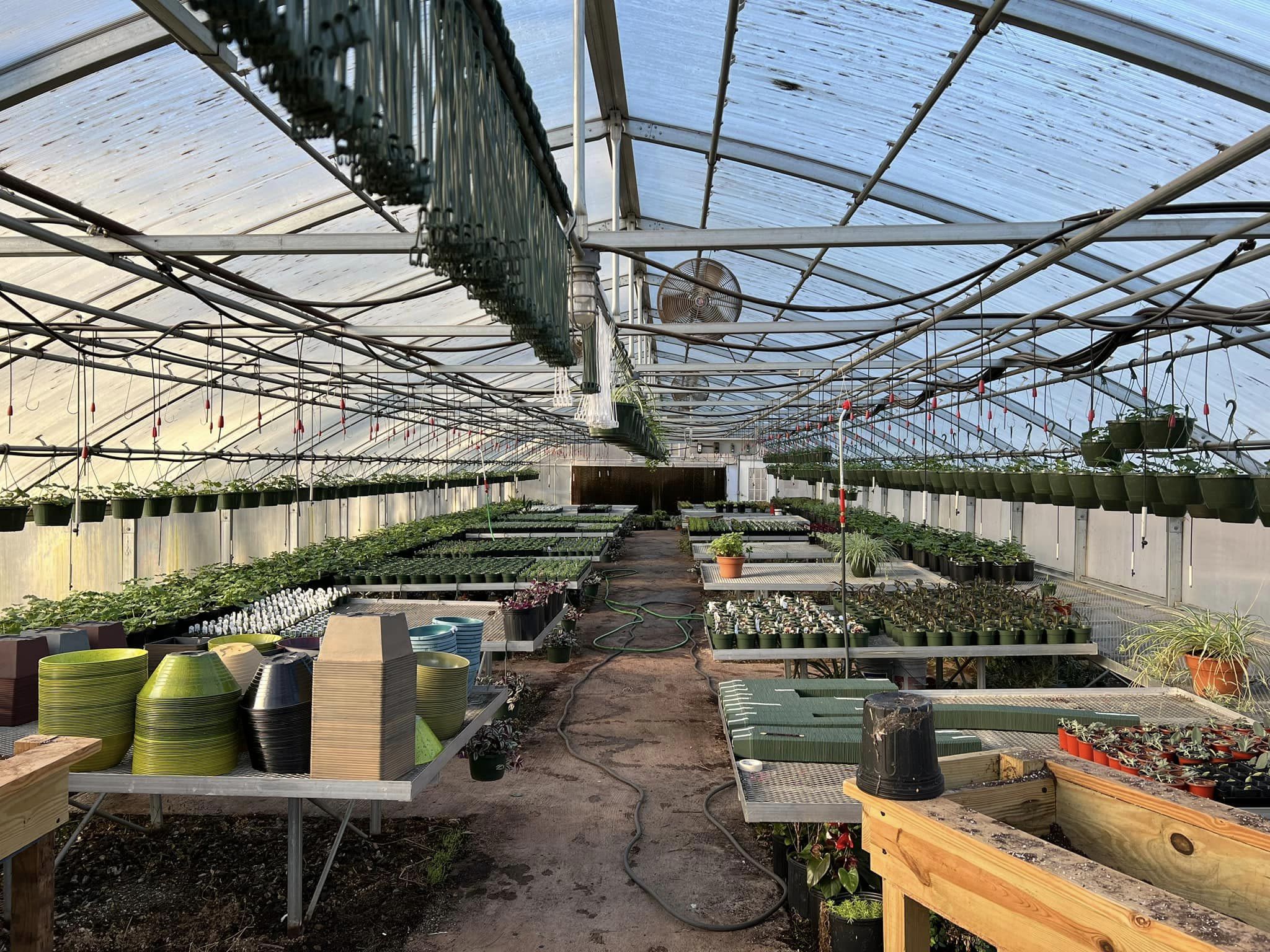
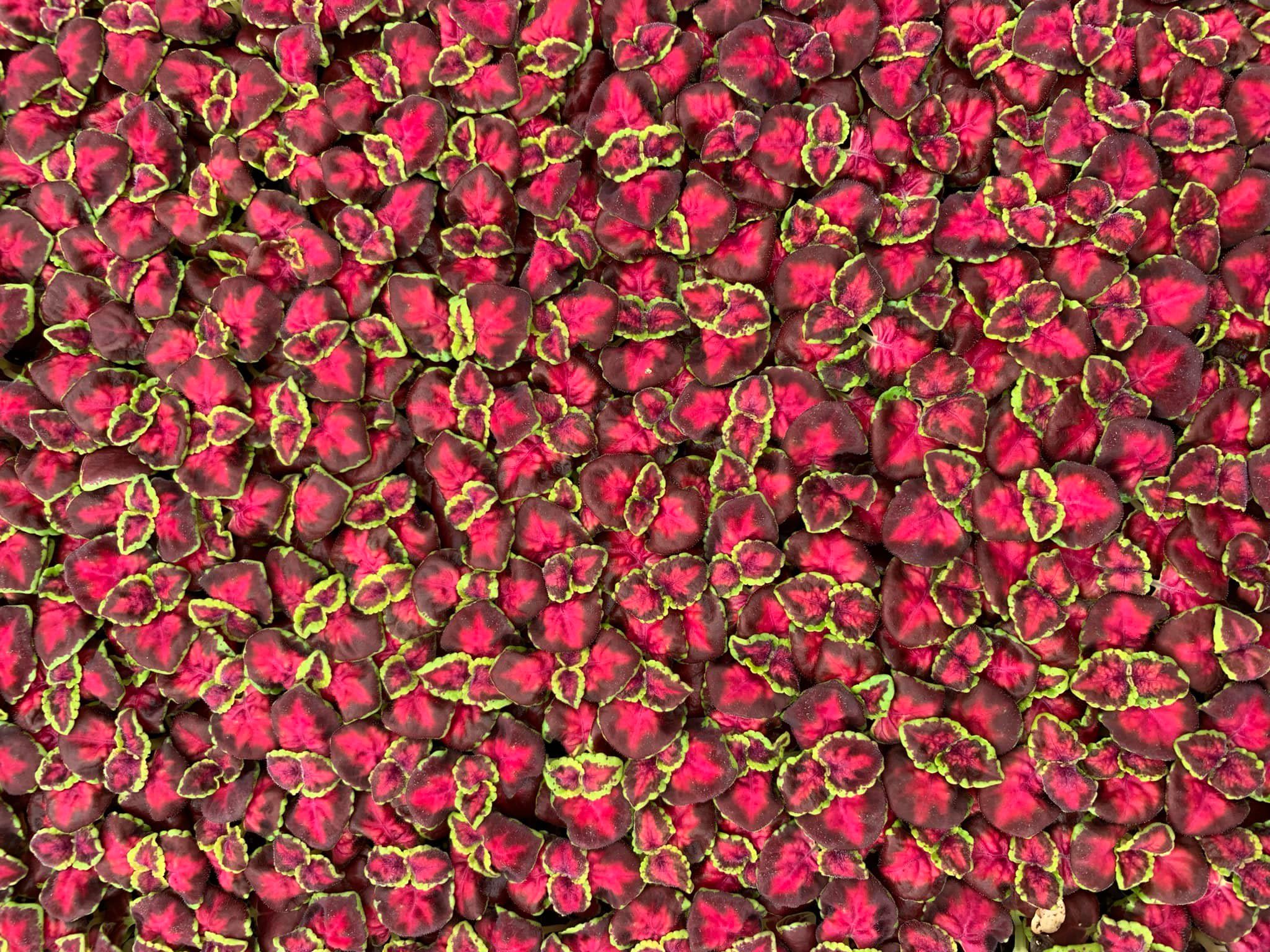
Pedraza, who earned a master’s degree in agricultural education and communication from the University of Florida in 2015, is in his ninth year of teaching. He taught agriculture in Burke, Newton and Jackson counties before joining the staff at Madison County High School in August 2021, where he teaches agriculture courses and is the advisor for the FFA chapter.
Pedraza said many Latino students don’t want to go into agriculture because they view all agriculture as production.
“For many of them, their parents work in some sort of agricultural production that is very labor intensive and that is not something they want to do,” Pedraza said. “I try to show them that is not the only path in agriculture, that there is a lot of opportunity in the agriculture industry, and that there will always be jobs because agriculture keeps everything else running.”
For his students, Pedraza tries to open their minds to the career potential of agricultural and environmental sciences.
“There are opportunities to work as an entrepreneur, an industry manager, an agriculturalist and never have to set foot in a field. We need scientists and people working in labs.”
Pedraza tries to build relationships with all of his students, connecting with them like Sell did with him.
“I make a point of trying to talk to every student individually. With my minority students, I am trying to work on getting rid of the stereotype of agriculture as just farming and that these greater opportunities exist for Hispanics and other minorities, as long as they are open to those ideas,” Pedraza said. “I ask them what they are looking to do, and I let them know about the kinds of assistance they can get to go to college. I try to show them the opportunities that are available to them overall and specifically depending on what they want to do. If they decide that is something they want to do, I help them build their resumes and get them into the program doing something they are interested in within the agriculture field.”
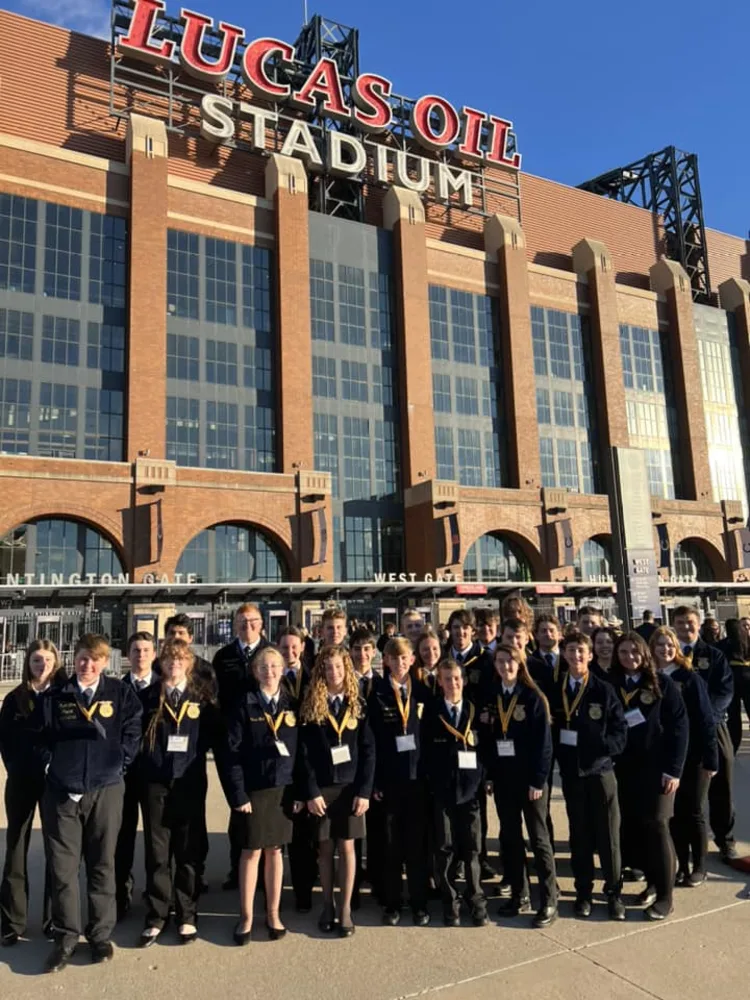
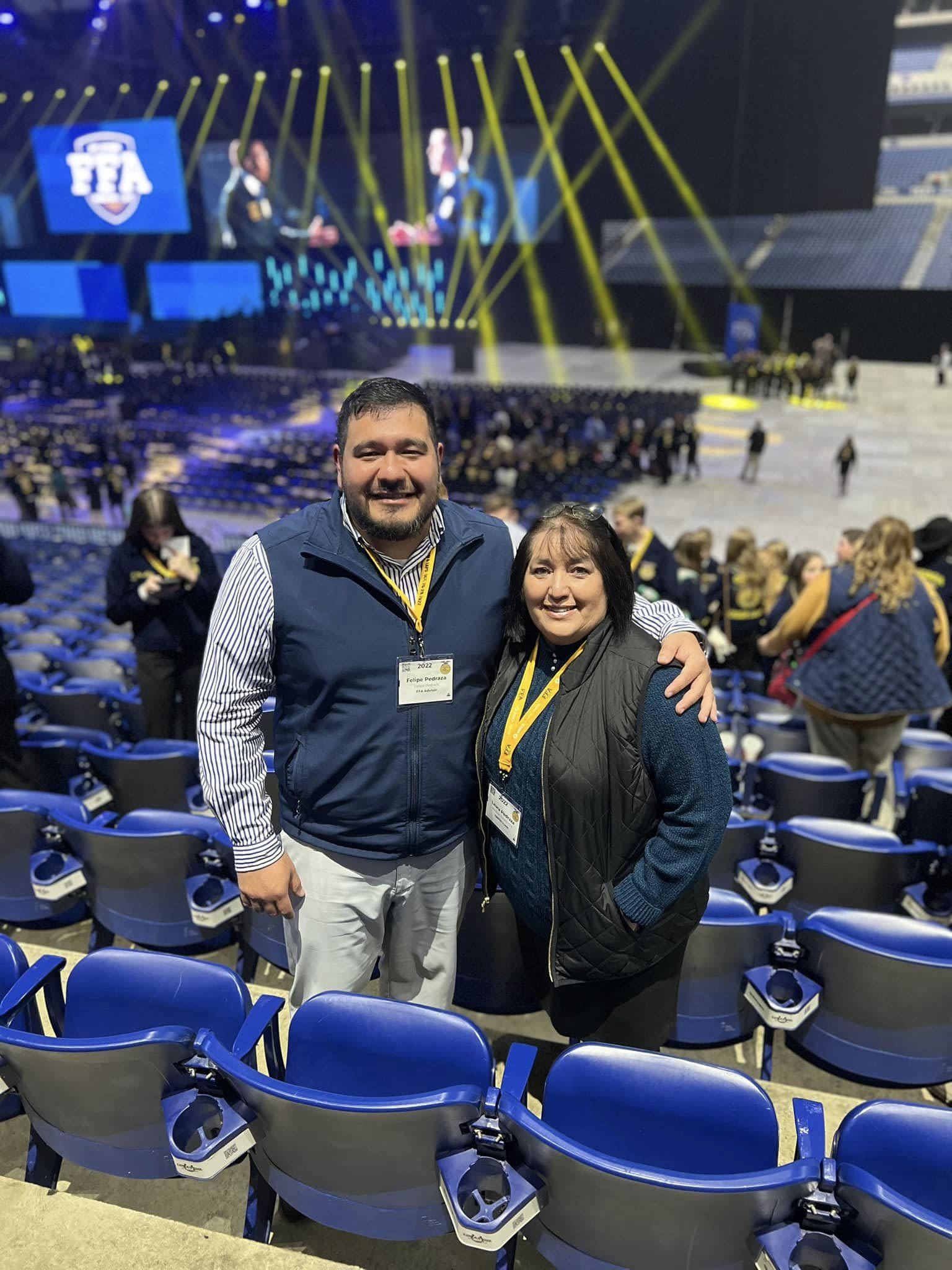
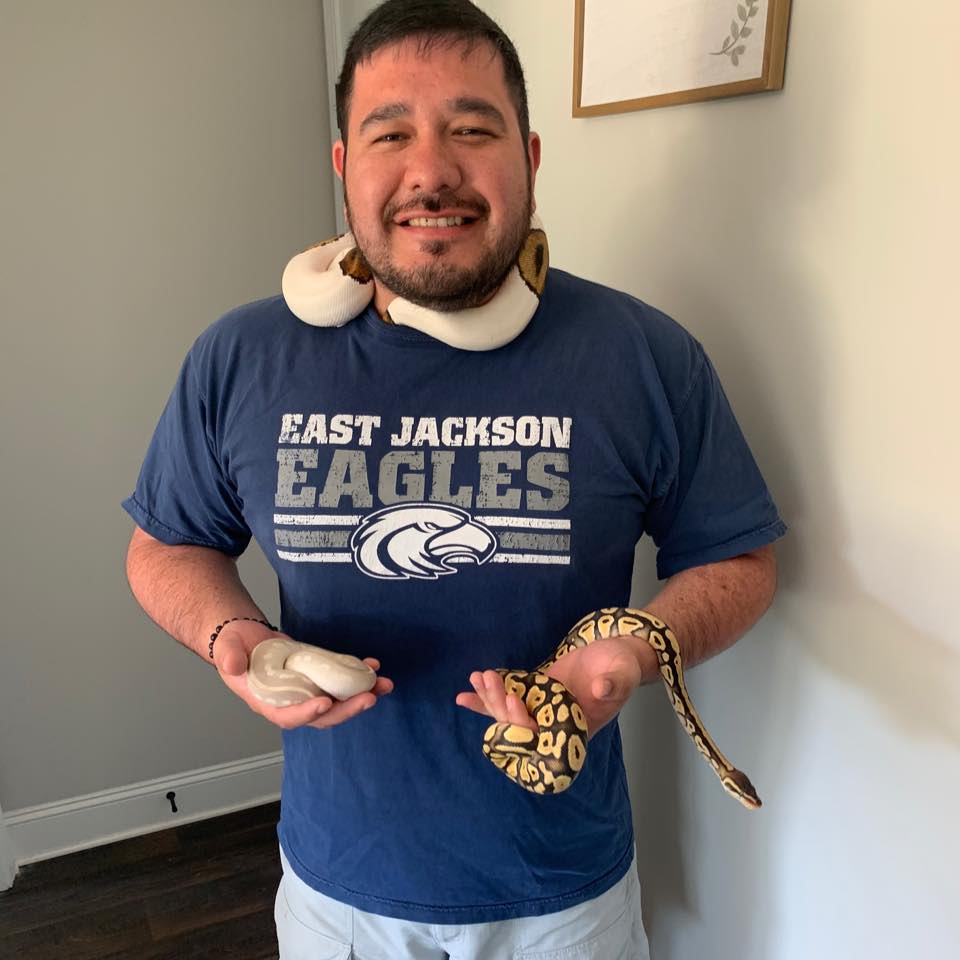
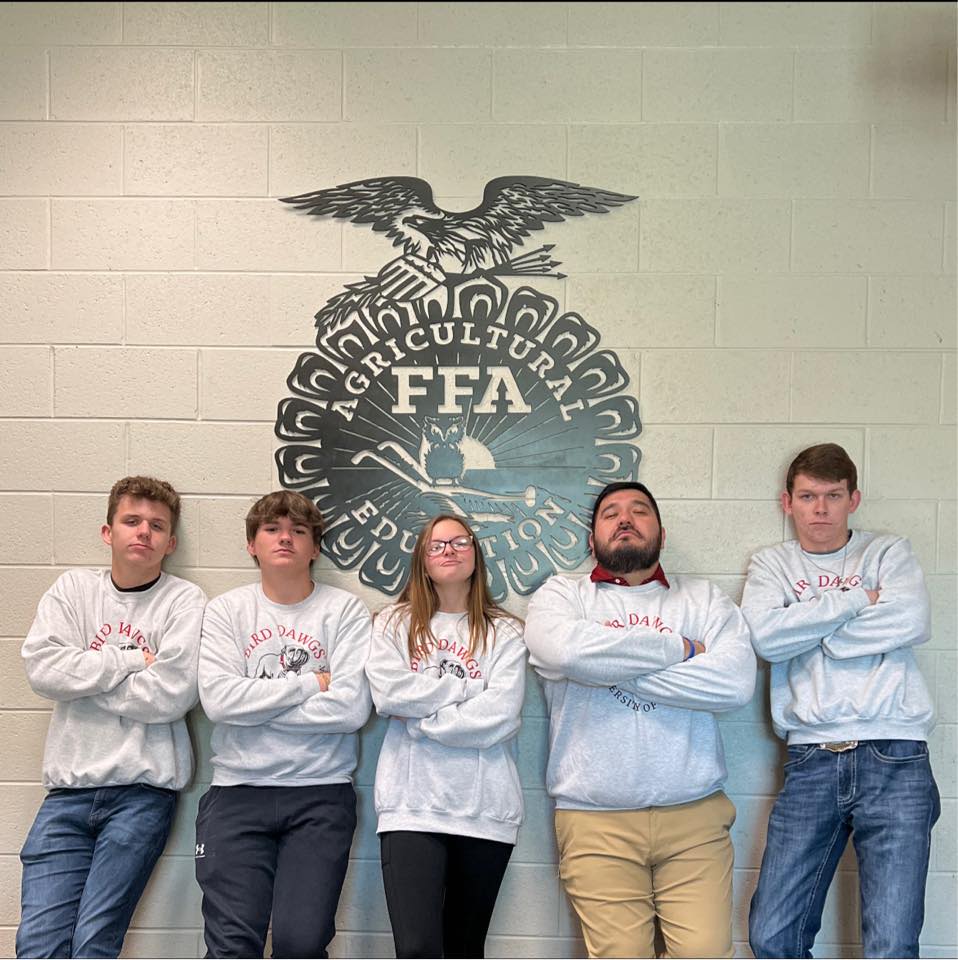
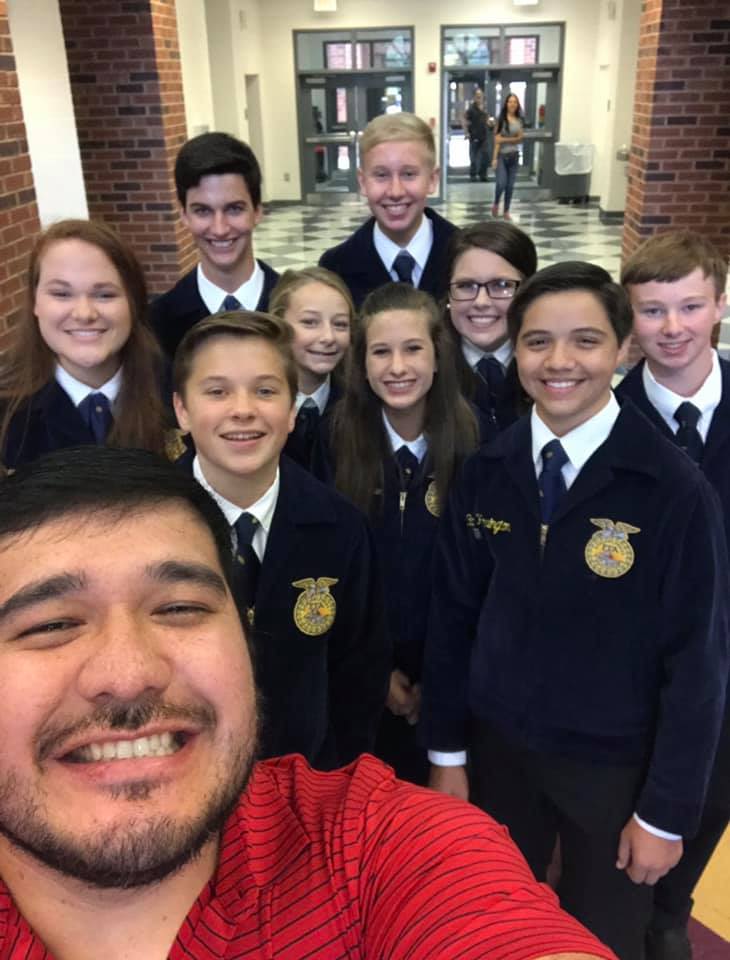

Madison County High School FFA traveled to Indianapolis, Indiana, for the 95th National FFA Convention in October 2022.
Madison County High School FFA traveled to Indianapolis, Indiana, for the 95th National FFA Convention in October 2022.

Pedraza poses with his mother, Laura, at the National FFA Convention.
Pedraza poses with his mother, Laura, at the National FFA Convention.

Pedraza demonstrates how to properly handle snakes.
Pedraza demonstrates how to properly handle snakes.

Pedraza and four of his students pose in UGA Bird Dawgs sweatshirts after visiting the CAES Department of Poultry Science.
Pedraza and four of his students pose in UGA Bird Dawgs sweatshirts after visiting the CAES Department of Poultry Science.

Pedraza poses with his students while representing Madison County High School FFA.
Pedraza poses with his students while representing Madison County High School FFA.
When talking with parents, Pedraza shares their students’ interest and helps them see the potential careers their students can pursue.
“I tell them that this is what I can help your student achieve if you help me,” he said. “As educators we need to do a better job of sharing the knowledge we have to help our students succeed.”
While he is doing his part as a high school agriculture teacher, Pedraza feels that colleges and universities could put more effort into recruiting underrepresented students.
“Almost every college and university is looking to diversify, but I haven’t seen much effort, or any at all, in the high schools I have worked in to create recruitment materials in different languages or to have Facebook or Instagram posts or fliers translated into Spanish or Asian languages,” he said. “Maybe if they try a little bit harder in getting materials out there to recruit different minority groups or have recruiters who can speak to Hispanic families in Spanish, they can make more progress.”
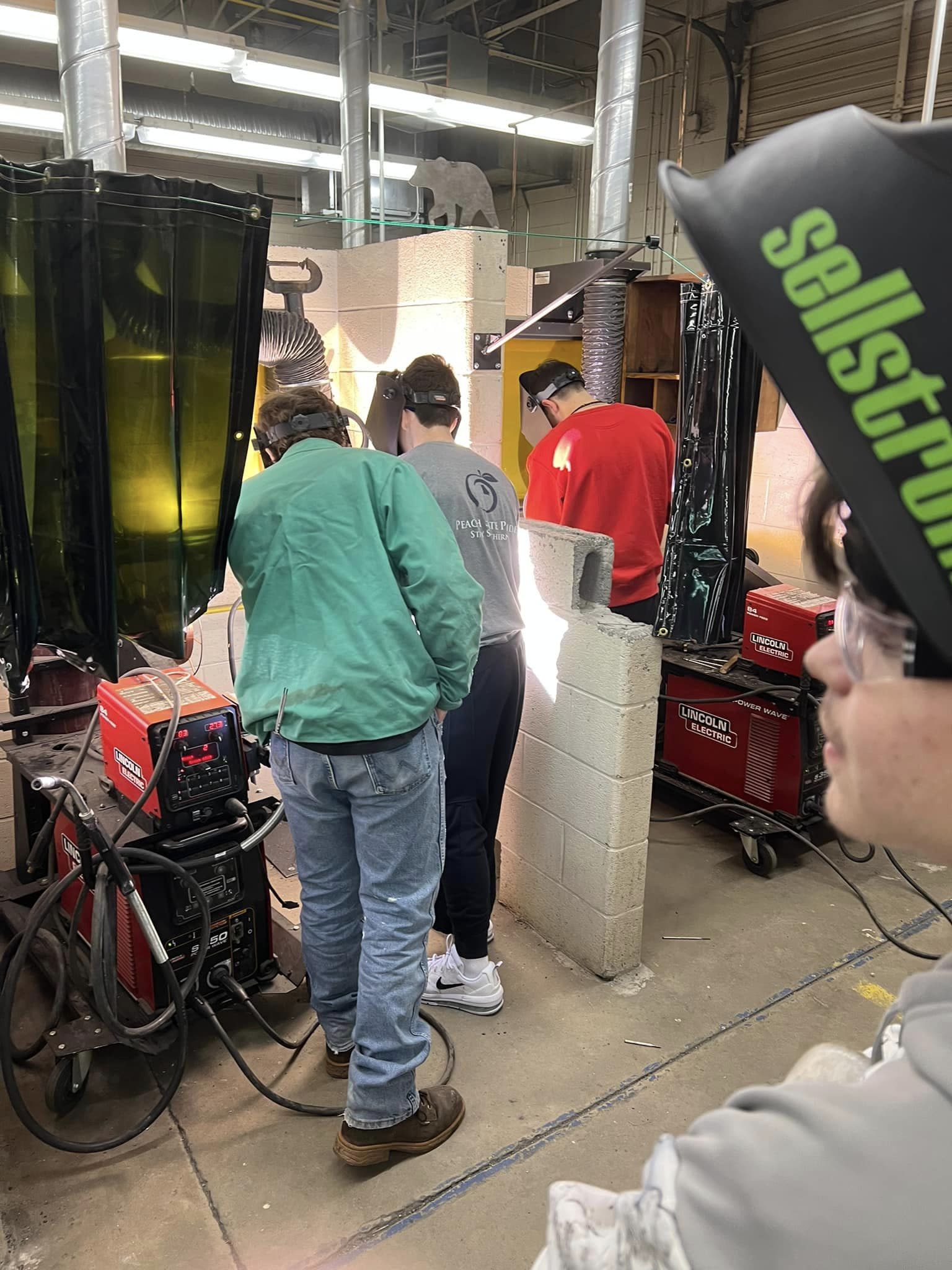
Students in Pedraza’s “Basic Agriculture” class learn the fundamentals of arc welding.
Students in Pedraza’s “Basic Agriculture” class learn the fundamentals of arc welding.
Pedraza said teachers and counselors at high schools are more than willing to help distribute recruitment materials or organize recruitment events catering to underrepresented students and their families.
“For one thing, they need to reach out and be able to provide materials in a good format to reach those students and their families to show them what the possibilities are and what they have to do to get there,” he said. “It takes a lot of communication, and most colleges have whole departments for recruitment, they should be able to handle doing that. It will take efforts like that to diversify campuses more. Everyone needs to try a little bit harder.”


